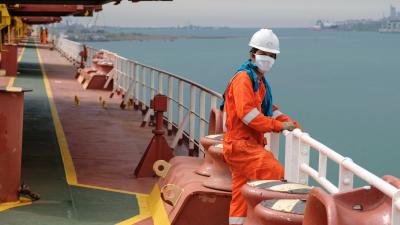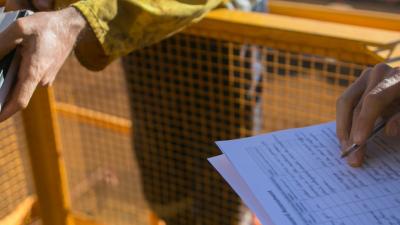
What works for seafarer wellbeing
What works in maritime wellbeing: rapid evidence assessment
This page is approximately a 4 minute read
This page was published on

At Lloyd’s Register Foundation, we believe that using insight from the best available evidence leads to better decision making. And as a charity with a mission to improve safety, we believe that evidence-based, safety-related decision making, ultimately saves lives.
The Foundation wanted to gain a better understanding of how decisions that impact occupational safety and health (OSH) practices are made and the role that evidence plays in these decisions.
In partnership with the National Safety Council, we commissioned a team at RAND Europe to investigate the current state of evidence in OSH. They conducted a rapid evidence assessment of the existing literature, engaged with stakeholders using a survey, reanalysed existing interview data, and undertook in depth interviews with practitioners. The work focussed on answering the following questions:
The full report is available on the RAND Europe website.
The research highlighted that no one definition of evidence exists in the OSH world and that various information and sources are used to support decision making. RAND describe a lifecycle of evidence which refers to the production, synthesis, sharing and use of evidence at an operational and systems level, which are all interdependent processes in practice.
The report highlighted factors that influence decisions and evidence use in decision making. In ascending priority:
RAND found that the size of an organisation and geographies can significantly impact how these factors influence decisions.
RAND presented recommendations for different stakeholders in the OSH evidence ecosystem:
The work provides a basis for those wanting to understand and influence the use of evidence in occupational safety and health. It provides an indication of the current state, which can be used to raise awareness of the potential for improved safety by increasing the use of evidence in OSH decision making.
The Foundation will continue to promote the use of evidence. Through a feasibility study with RAND Europe, the Foundation is exploring the potential impact of a ‘what works’ approach for safety, which will include working with industry to further understand decision making and assessing the impact on safety outcomes of translating evidence and research into practice on an ongoing basis. This work in OSH has highlighted some general areas for work to focus on. Two scoping studies will explore in more detail how a what works approach might work in small and medium sized enterprises (SMEs) and in maritime, focussing specifically on seafarer wellbeing.
‘What works’ is a method that can be used to improve the impact that research findings have on people’s lives. It is based on the principle that good decision making is underpinned by good evidence, and if that evidence isn’t available, robust ways of generating that evidence should be established. What works recognises that research evidence on its own is not enough; you need to know how and why something works, for who, and finally, how to implement what is known.
For further information on the project, please get in touch via the form below.